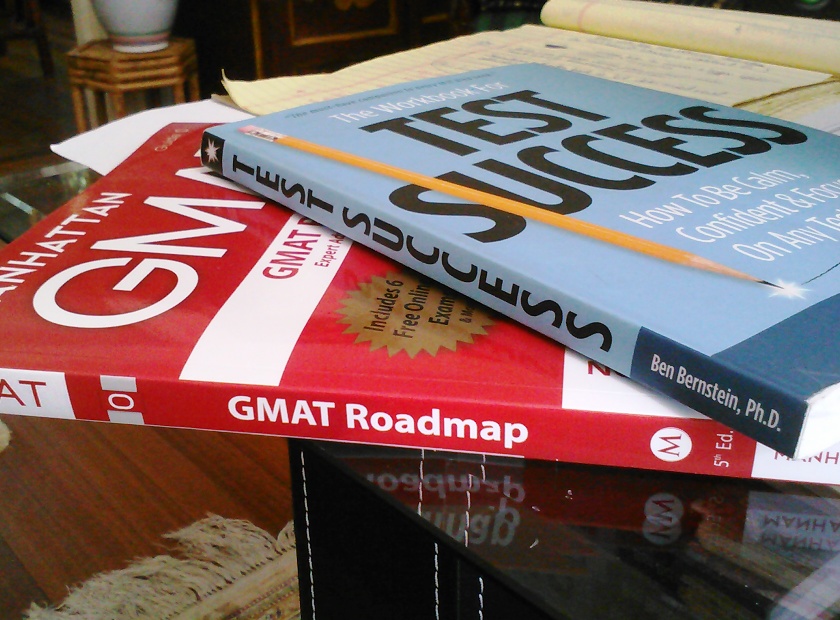Tired of my advice? Great MBA admissions tips from someone who made it to HBS
 Every so often I see a piece from a student that actually helps prospective candidates and is not filled with in-jokes or self-congratulations. So, if you been searching around on the internet for advice on the application process, here’s are some down to earth tips from someone who does not advise prospective applicants for a living.
Every so often I see a piece from a student that actually helps prospective candidates and is not filled with in-jokes or self-congratulations. So, if you been searching around on the internet for advice on the application process, here’s are some down to earth tips from someone who does not advise prospective applicants for a living.
I found these Harvard MBA admissions tips on Quora, in answer to the question, “How Do I Get Into Harvard Business School?” There you will find your typical answers from admissions consultants, but in the midst of all the “I know more than you” bravado, there’s a brilliant, honest answer from a guy named Talal Khan, who is a member of the Harvard Business School class of 2016. I am unashamedly reposting it here.
My favorite parts of the must-dos? Taking notes on your own story and working on your unique selling proposition. Favorite don’t? Have self-doubt. It’s a lovely sentiment and true.
How do I get into Harvard Business School?
by Talal Khan, Harvard Business School, class of 2016
I have started this year, and thought of adding my experience to the conversation. This will be helpful to folks planning to apply sometime soon:
Things I’d do again:
A- Start research early: I started doing my online research (reading forums, connecting with people, getting profile reviews) a year before I actually ended up applying. In my case, this all started with random doodling on the web, and the thought that I might apply to Bschool next year. But to potential candidates reading this, I’d say start your research well ahead of time, as it’ll help you present a stronger case (better GMAT, stronger story – reviewed by more people) Oh and that’s the external research. You’d also have to spend time thinking about your own life (highlights/lowlights/decision points). This helps immensely with points B-F below. For me what worked was, that I took pen and paper (not laptop, so no social media distraction) and started jotting down any and all moments that I was proud of. I listed even the most basic achievements. When I picked up that paper a week later, it helped me see my own story in a new light. (Connect the dots looking backward, Steve Jobs reference)
B- Talk to (lots of, different) people: This is where (A) really helps. You should try getting advice from multiple people, from diverse backgrounds (geography, industry, school, function etc). Since you’d be talking to successful (i.e. busy) people – they’ll need time to get back to you. Not all people you engage will respond back. But if you request enough people for help, more than a reasonable number will respond (source: my experience only). In my case, I found that each of these conversations added a lot of color and nuance to my perspective on Bschools and applications (on issues ranging from how much work experience is sufficient, to which schools to apply to, to what a particular school defines as fit etc).
C- Engage with admission consultants: Their years of experience helped me immensely in aiming high enough (for context: I was initially planning to apply to schools ranked between 20-30). This happened as they were able to succinctly point out my unique strengths (vis-a-vis the competitive pool that they’re so well aware of, given their experience). Highly recommended for international applicants.
D- Prepare your elevator pitch: Have a 3 line summary describing your candidacy. Since this is about summarising the best parts of your application, it will take time and thought to prepare this. But having a concise summary immensely helps people whom you’re asking for help with profile reviews etc, and in turn improves the response rate you get. As for what to include, I like to think of it as highlights from
i) where you come from (personal history, gmat/gpa etc)
ii) where you stand (current work profile, title)
iii) where you want to go (future goals- industry/function)
E- Follow Stanford GSB’s advice on recommendation letters: Nuggets of gold! To quote from the site,
…when I read a really great recommendation the person jumps off the page and they really come alive. I feel like I know them; I know the good, the bad, the warts; if I walked into a room, I could almost pick out this person.
F- Work on my USP: When advising me on essays, a senior asked me what differentiates me from everyone else? While this may sound cliched, it is an important question that needs a lot of thought. Another way to think about it (borrowing from principles of branding) what is the one unique trait that you’d like to be remembered for? Another spin: If the adcom member were asked about you 5 days after they read your app, what would you want them to say? ‘Oh XYZZ! the person who ………?’ For the adcom member to recall the …. part, there has to be one unique, remarkable trait displayed consistently throughout your app (resume/essay/reco letter)
G- Pray: Helps immensely in coping with pressure and sustaining morale. Definitely one of the most important things that kept me going till the end!
Things I wouldn’t do:
A- Miss the basics: submit application on last day, try paying through a card that wasn’t working for some reason
B- Become complacent: After my HBS interview went fine, I prepared little for my Booth interview. That led to some awkward pauses during the interview, and could’ve ended up costing me the Booth offer. For example, I went blank for a few seconds when my interviewer asked me, ‘So that’s about it from my end. Do you have any questions for me regarding Booth or life in Chicago?’
C- Take practice exam after practice exam: When I got lower scores than I was aiming for, I’d start taking exam after practice exam. Without drilling down to exactly which areas I was struggling with (topic, question type). I wasted precious time because of this approach, not improving my skill deficiency, and getting frustrated because of it.
D- Study GMAT without a practice partner: Again, this would have helped me save time and stay motivated. But I relied primarily on online material and a Kaplan book for help.
E- Have self doubt: This is that gnawing feeling inside you, saying ‘But I’m not good enough for this..’ This is all those times when you tried extremely hard and failed miserably, in plain public view. Pangs are sharpest as you draw nearer to hitting Submit. How does one respond to this? On a rational level, remind yourself of all the people you’ve talked to, all the thought you’ve put into this and that post all those weeks of discussion/thought, You decided that this was the best option (and it was never meant to be risk-free) On an emotional level, think of the inverse situations – where you had major doubts about your ability to do well, but you went ahead and aced whatever it was you were doing. That arts class. That debating competition. That heroic on sports day. That eternally-un-impressable boss. And add to that, testimony from countless successful candidates, saying that they’ve all felt something similar, at many points, in the application process. So have faith and take the leap!
Reposted from Quora with minor edits for clarity. To find the original, click here, but please skip the other answers, and go straight to Talal Khan’s, which is listed at about #8. I don’t know how they rank the other posts, honestly.






